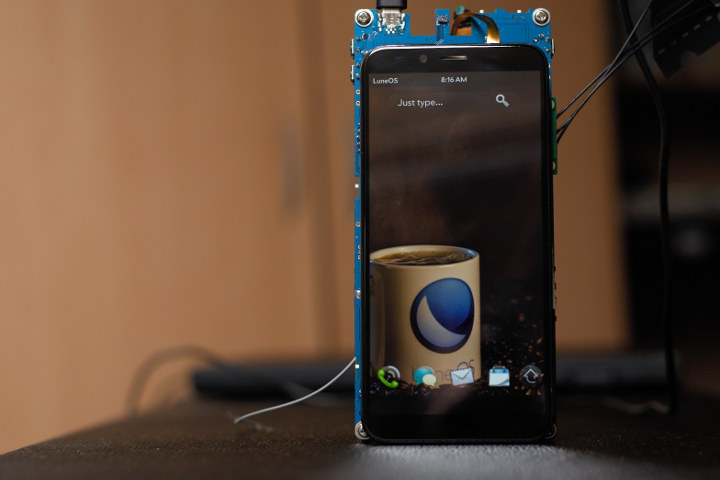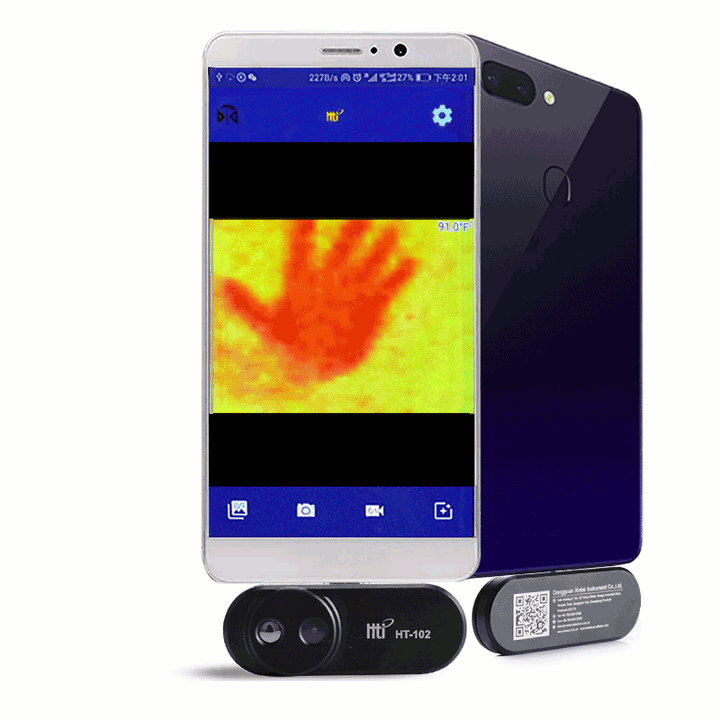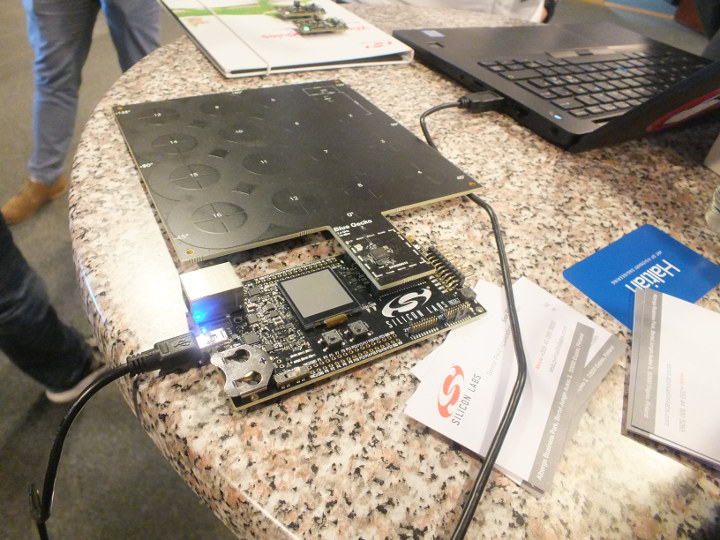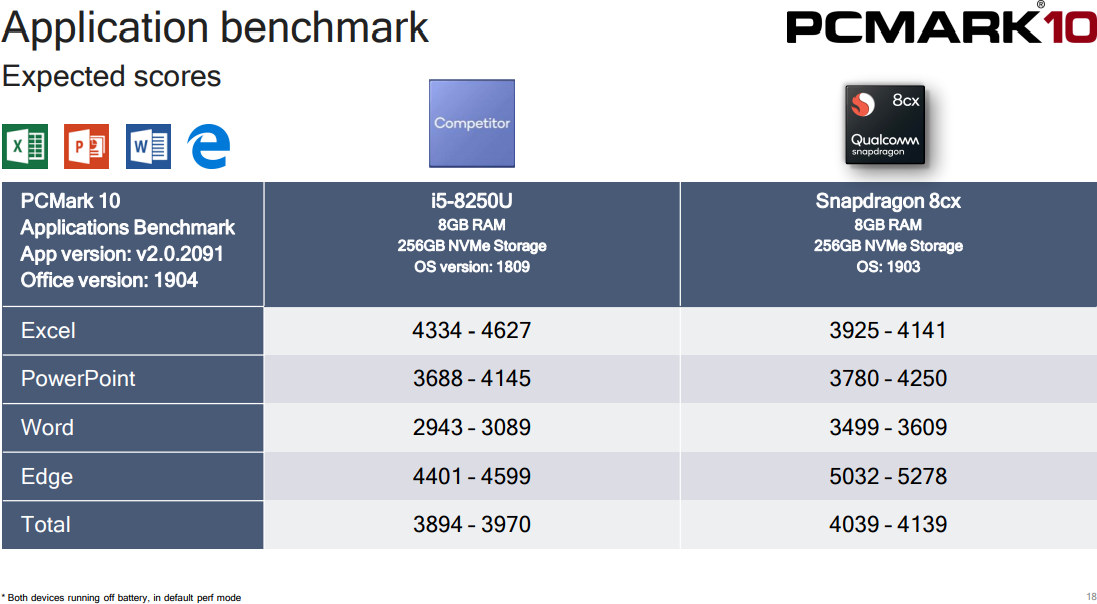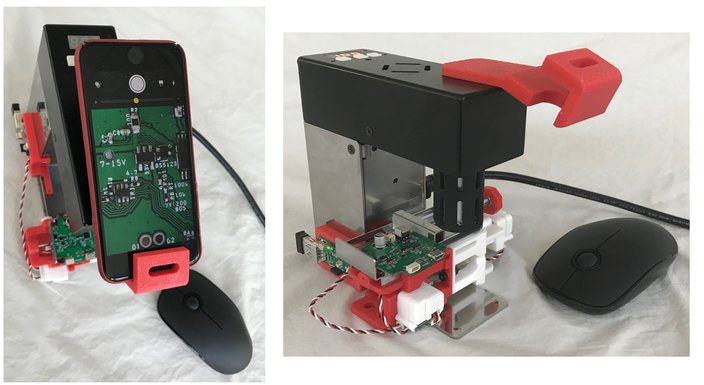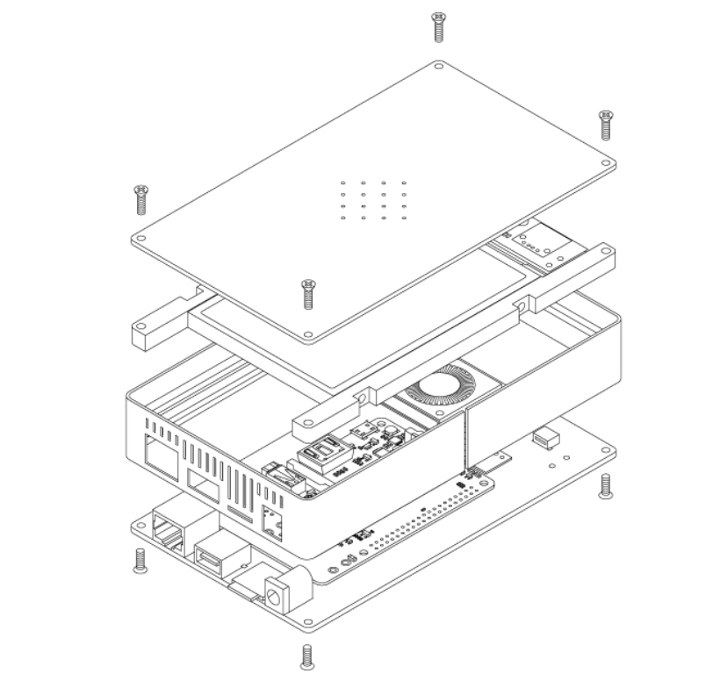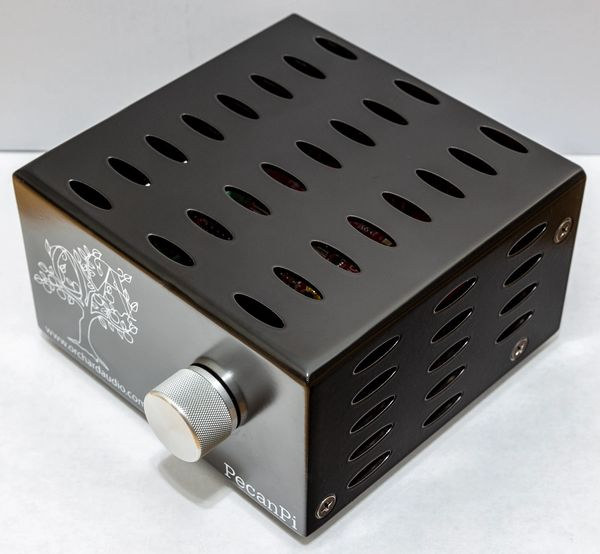Several Linux phones are expected this year including Purism Librem 5 and Pine64 PinePhone. Both companies have sent phone development kits out to developers a few months ago, and we are starting to see some nice progress for both phones. What made me write this post is an update from Purism comparing the boot time on Librem 5 running PureOS Linux distribution without specific optimizations yet, and HTC One Android smartphone. Librem 5 smartphone devkit takes 13 seconds to get to the lockscreen, while the Android phone takes over 40 seconds. Fair enough, most people won’t boot their phone often, but it still nice to know it won’t take long to turn on the phone from power off state. They also posted a progress report at the end of May saying calls are now working with better audio quality, fixed various issue with messaging in Chatty, work on Linux […]
HT-102 is a $130 Thermal Camera for Android Phones
Thermal cameras are useful to accurately monitor the temperature of electronics components, people, fires, houses, and so on. Thermal imaging cameras can be relatively expensive and one way to lower the cost and make sharing of results easier is to get a model that connects to your smartphone. The ones listed on Amazon cost $200 and up, but you’ll find HT-102 thermal camera for Android phones on Chinese websites such as GearBest or Banggood for around $130. HT-102 specifications: Material: metal Capture Temperature Range – -20 to 300°C Accuracy – ±3℃ or ±5% of reading Resolution – 0.1℃ or 0.1℉ Working band – 8-14μm Horizontal viewing angle / vertical viewing angle – 43°±1°/ 43°±1° Infrared image resolution – 32 x 32 Visible image resolution – 640 x 480 Phone I/F – USB type-C port for data and power Dimensions – 60 x 30 mm Weight – 19 grams Temperature Range […]
Bye Bye Camera Notch, Hello Under Display Camera
As phone manufacturers tried to stretch the screen to body to the theoretical limit of 100%, some not-always-broadly popular design choices had to be made. And so the camera notch was born to expand the screen, which resulted into an ultra-thin top bezel, combined with a small cut-out for the front-facing camera that many people dislike. If you are one of those people, I have good news: the death of the camera notch could be near thanks to under display cameras. Xiaomi was the first company to release a demo this morning through a tweet by Alvin Tse, Head of Pocophone Global for Xiaomi. Check this out from our R&D team! @Xiaomi continues to innovate and we have some exciting tech up our sleeves. RT if you love under display camera! #xiaomi pic.twitter.com/4Rlzt9uRAd — Alvin T (@atytse) June 3, 2019 We can see two nearly identical poco phones above, except […]
Silicon Labs Demonstrates Bluetooth 5.1 Location Technology (Video)
Recently there are been advancements related to precise indoor positioning with the announcement for Bluetooth 5.1 and 802.15.4z. Both can provide 1 to 10 centimeters accuracy with minimal lag, and Bluetooth 5.1 achieves this through Angle of Arrival (AoA) and Angle of Departure (AoD) features and an antenna array. I had never seen the new feature in action, but Silicon Labs recently demonstrated Bluetooth 5.1 location technology at Arrow IoT summit with a DMX-512 connected light following a person carrying a Bluetooth 5.1 tag. It looks fairly accurate, and it does not have a 3-6 seconds lag like previous solutions based on earlier versions of Bluetooth? So what does one need to enable Bluetooth 5.1 location finding? First, we’ll need a Bluetooth 5.1 base station with an antenna array, The one used above includes a 16 antenna array (4×4 grid) used to calculated angles of departure and arrival and ultimately […]
Lenovo Project Limitless 5G Laptop and Snapdragon 8cx Benchmarks
Last December, Qualcomm unveiled Snapdragon 8cx processor for laptops, or as the company calls them “always-on always connected mobile PCs”. Only 4G LTE was mentioned at the time, but a few months later it was confirmed that the processor would find its way into 5G always-connected mobile PCs. Qualcomm made two main announcements at Computex 2019 about their new Arm processor for laptops. First, they announced a partnership with Lenovo for Project Limitless, the first 5G PC powered by the Qualcomm Snapdragon 8cx 5G compute platform, and the company released some benchmarks to demonstrate the high performance and long battery life of their solution. Lenovo Project Limitless 5G Laptop The press release did not reveal that much information, but we do know Project Limitless features Qualcomm Snapdragon 8C 5G compute platform with Snapdragon X55 5G modem enabling download speed of up to 2.5 Gbps, and it will be the first […]
REFLO Air is a $200 Open Source Hardware Portable PCB Reflow Machine (Crowdfunding)
While possible, it can be challenging to solder SMD components with a soldering iron or a heat gun, and going with a reflow oven is much easier and normally yields better results. But reflow ovens are usually fairly bulky, and somewhat expensive. MagixBox’ REFLO Air PCB reflow machine is much more compact making it more portable, open source hardware, and affordably priced since the early bird pledge starts at $199 on Crowd Supply. REFLO Air specifications: Control panel with LCD segment display and buttons Heat Control 100-300°C temperature control K-type thermometer Cooling fan Power Supply-110V-220VAC Max Power – 200 Watts Dimensions – 138 x 138 x 51 mm Weight – 900 g The company also offers optional accessories for its PCB reflow machine with a 3D-printed phone holder to use the phone’s camera to magnify the reflow area, a mini vice made of aluminum, and a semi-automated XY table. The […]
NODE Mini Server V2 is a Raspberry Pi Based Storage Server for the Decentralized Web
We’ve previously covered networked hard drive enclosures with Ethernet and/or WiFi running OpenWrt or Ubuntu that allows you to easily and fairly cheaply connect SATA drives to your local network with models such as Blueendless X3. NODE has done something similar with a DIY project featuring a Raspberry Pi 3 Model B+. NODE Mini Server V2 connects the popular SBC to a 2.5″ SATA hard drive over USB and is designed to build out the physical infrastructure for the decentralized web (e.g. IPFS) that would allow users to replace remote servers with nodes that they themselves own and operate. Having said that nothing would prevent you from using this as a simple NAS although performance will not be as optimal as the aforementioned products due to the lack of SATA or USB 3.0 interface, as well as having “Gigabit” Ethernet limited to 300 Mbps. Having said that the design could […]
PecanPi Audio Streamer with Volumio, Squeeze or Rune Audio Goes for $399
We’ve recently covered the upcoming Volumio Motivo audio streamer, but there’s another product for audiophiles running Volumio audio software. Orchard Audio PecanPi Streamer is based on Raspberry Pi 3 boards combined with the company PecanPi DAC HAT bringing high-quality audio to the Raspberry Pi. PecanPi Streamer specifications: SBC – Raspberry Pi 3 Model B with WiFi, Ethernet, 4x USB ports. PecanPi DAC HAT Texas Instruments PCM1794A high performance stereo 24-bit DAC, 192KHz sampling HW volume control and re-clocking via TI SRC4193 sample rate converter XLR Output: Signal to Noise Ratio (SNR): 130dB (A-weighted) Dynamic Range (DNR): 125dB Total Harmonic Distortion + Noise (THD+N): -110dB or 0.0003% Output Voltage: 5Vrms RCA Output: Signal to Noise Ratio (SNR): 124dB (A-weighted) Dynamic Range (DNR): 121dB Total Harmonic Distortion + Noise (THD+N): -110dB or 0.0003% Output Voltage: 2.5Vrms Headphone Amplifier (Dual parallel OPA1622): 390mW peak power into 32 ohms 780mW peak power into 16 […]


